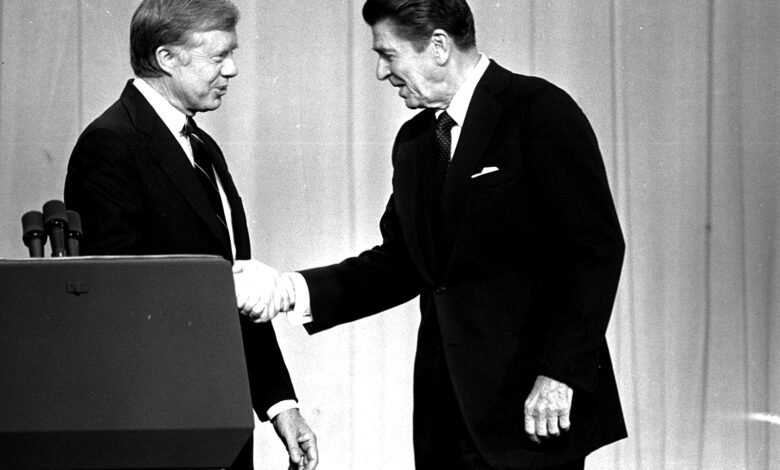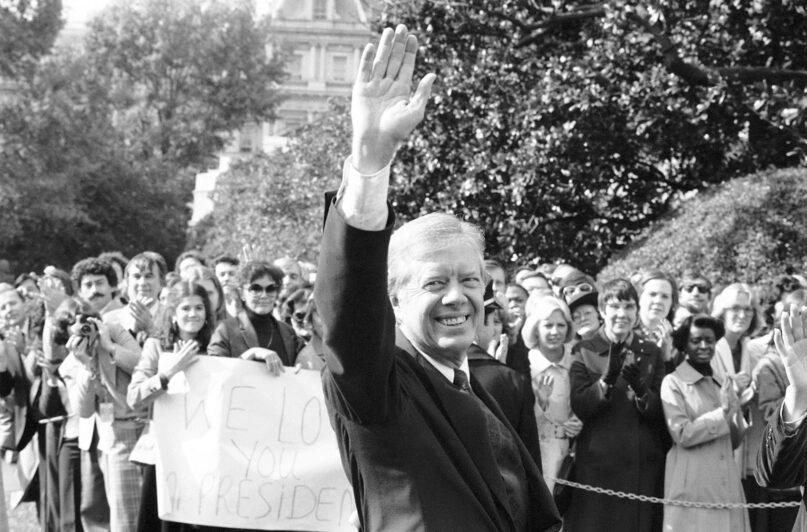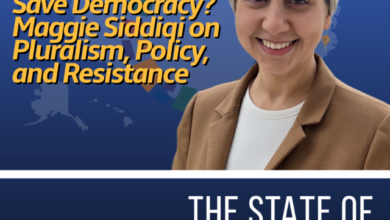
(RNS) — Amid the many accolades and occasional brickbats now raining down on the late Jimmy Carter, let us note that the most consequential legacy of his one-term presidency is the religious right, the longest-lasting political movement in American history.
How so?
Winning the highest office in the land in 1976, Carter represented a mortal threat to the Republican Party’s strategy of making the increasingly populous South the engine of a new, nationwide GOP majority. Raised Southern Baptist on a peanut farm in southwest Georgia, he used religio-regional pride to recall white Southerners to the national Democratic fold. Where the last Democratic president, Lyndon Johnson, had lost all five Deep South states from South Carolina to Louisiana 12 years earlier, the former governor of Georgia won every state of the old Confederacy except Virginia.
Carter’s personal religious identity was more complicated than you might have thought from Newsweek’s famous “Born Again!” cover story, which christened 1976 as “the year of the evangelical.” As described by Jonathan Alter in his fine biography, Carter had no sudden come-to-Jesus moment as a youth, but rather, in middle age, a growth in Christian commitment derived from reading the theologian Reinhold Niebuhr, doing mission work and reflecting on his own spiritual state.
No liberal, the moderately progressive positions Carter took on issues such as abortion and women’s rights were in line with the moderate progressivism of the Southern Baptist Convention of the 1970s. That, however, was about to change.
In 1979, conservative leaders in the SBC mobilized their forces, electing one of their own as president and setting in motion a full takeover of the denomination. The following year, some of the same leaders joined forces with Republican operatives to mobilize evangelicals against Democrats in general and Jimmy Carter in particular. For if the Southern strategy was to be kept intact, Carter had to be discredited and defeated.
In June, after being chosen as the conservatives’ second SBC president, Oklahoma pastor Bailey Smith showed up at the White House and denounced Carter as a “secular humanist.” A month after being anointed Republican presidential candidate, Ronald Reagan showed up at Reunion Arena in Dallas and addressed the National Affairs Briefing, a gathering at which one prominent pastor after another summoned evangelical attendees to political engagement.
“I know this is a non-partisan gathering, and so I know that you can’t endorse me, but … I want you to know that I endorse you and what you are doing,” Reagan said with a straight face, before urging the crowd to get out and vote for their values.

FILE – U.S. President Jimmy Carter waves as staff holds up sign proclaiming “We Love you Mr. President” in Washington, Nov. 5, 1980, as the president walks to the helicopter for a trip to Camp David, Md., after losing the 1980 election to Ronald Reagan. (AP Photo, File)
In November, Carter went down to defeat, the victim of persistent inflation, the Iranian hostage situation — and of evangelicals turning against one of their own. Returning to Georgia, he established the Carter Center in Atlanta as a place to promote good things around the world, wielded a hammer helping Habitat for Humanity build houses for poor people in America and teaching Sunday school at his small church in Plains. In 2000, he announced he was no longer a member of the SBC.
As for the religious right, it took off from the Carter years, remaking the Republican Party’s social policy agenda, reconstituting its demographic base and establishing religiosity as a central feature of American political behavior. It largely succeeded in advancing the Southern strategy it was designed to rescue and, having undergone some subtle and some not-so-subtle transformations, persists to this day.
Whether it would have come into existence in the absence of Jimmy Carter’s presidency is a nice question — one that, like all historical counterfactuals, cannot be conclusively answered. My guess is that something like it would have emerged but that it would have been smaller and weaker, less consequential and less enduring. And the country would be better off.
Source link




